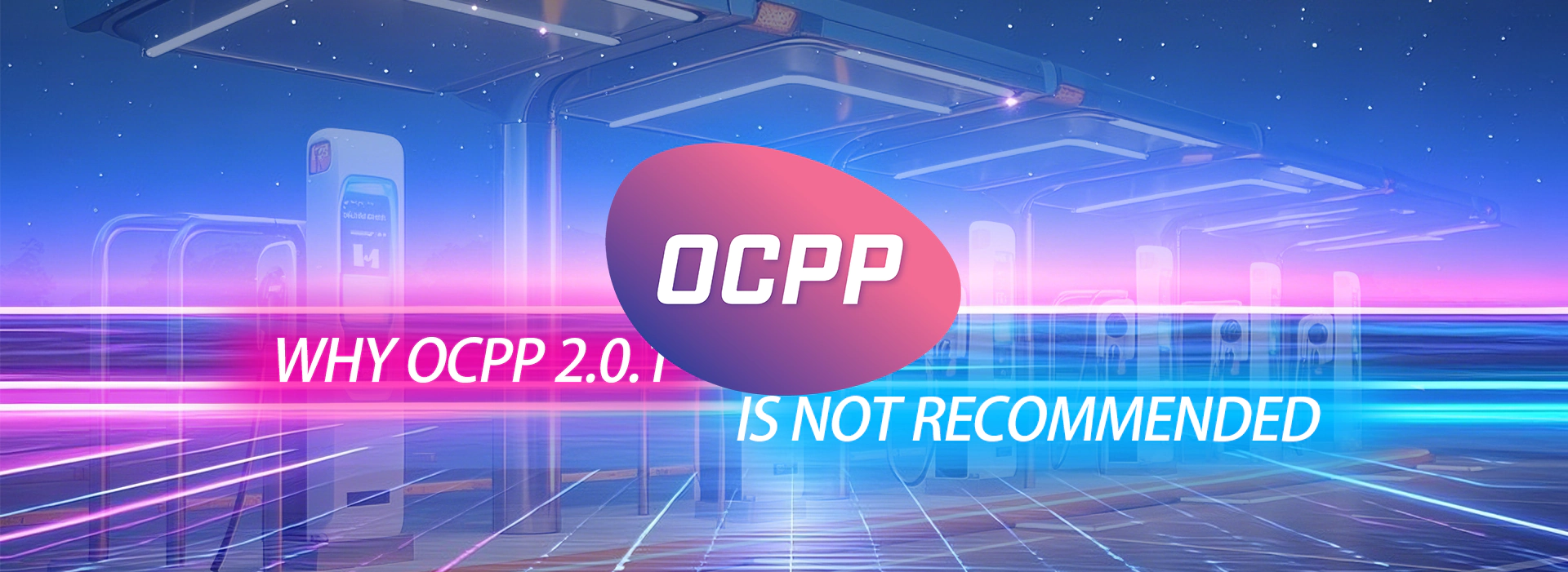
Why OCPP 2.0.1 Is Not Recommended?
With the rapid development of electric vehicle charging infrastructure, OCPP has become an essential protocol for charging stations aiming to expand globally, serving as the core communication standard between charging stations and Central Management Systems (CSMS). Currently, OCPP 2.0.1 is the latest version of the protocol, offering enhanced functionality and security. However, despite representing the future direction of the industry, there are still significant challenges to adopting OCPP 2.0.1 on a large scale at this stage.

▶ 1. Incompatibility Issues
OCPP 2.0.1 is not backward compatible with earlier versions (such as OCPP 1.6 and 1.5). Due to changes in data frame formats and message structures, upgrading to OCPP 2.0.1 requires substantial modifications to existing hardware and software. This poses a high cost for operators who have already deployed a large number of OCPP 1.6-based infrastructures.
▶ 2. Low Market Adoption
Although OCPP 2.0.1 introduces many advanced features, its market adoption remains relatively low. Most charging station manufacturers and CSMS providers still rely on OCPP 1.6, leading to potential compatibility and interoperability issues during deployment.
▶ 3. Implementation Complexity
OCPP 2.0.1 offers richer functionality, such as device management, smart charging, and support for ISO 15118. However, implementing these features requires a higher technical threshold. Developing, testing, and deploying these capabilities demand additional time and resources, increasing the complexity of implementation.
▶ 4. Data Security and Privacy Challenges
While OCPP 2.0.1 enhances security (e.g., support for digital signatures and stronger encryption protocols), these improvements also introduce new challenges. For instance, operators need to allocate more resources to ensure proper data privacy and security configurations; otherwise, they risk data breaches or compliance issues.
▶ 5. Costs and Return on Investment
Upgrading to OCPP 2.0.1 often requires hardware support (e.g., charging stations compatible with ISO 15118) as well as software updates. This can impose significant financial pressure on small- and medium-sized operators, especially when existing systems are sufficient for current needs, making the return on investment potentially insufficient to justify the upgrade.
▶ Conclusion
In summary, while OCPP 2.0.1 brings significant technological advancements to the charging station industry, its incompatibility with earlier versions, low market adoption, implementation complexity, and high costs limit its current applicability. For now, operators should carefully evaluate the necessity of upgrading and plan a gradual transition to OCPP 2.0.1 in the future when conditions are more favorable.